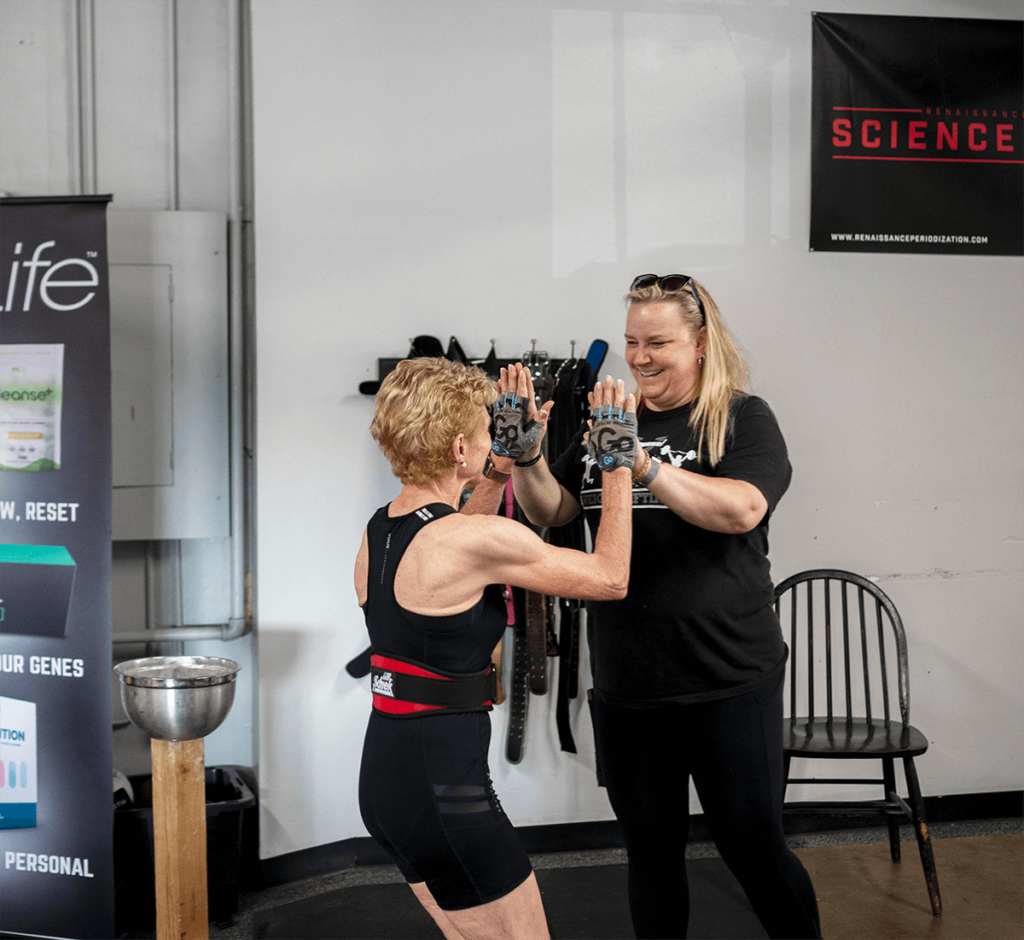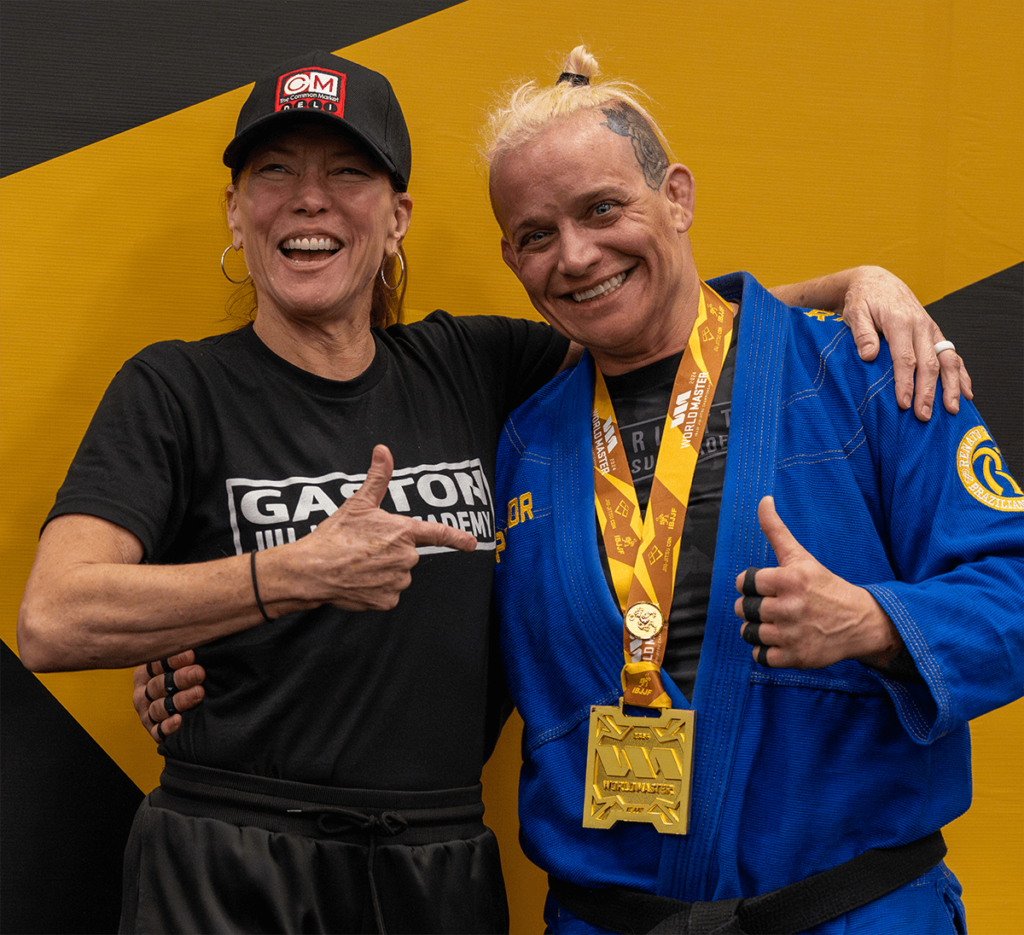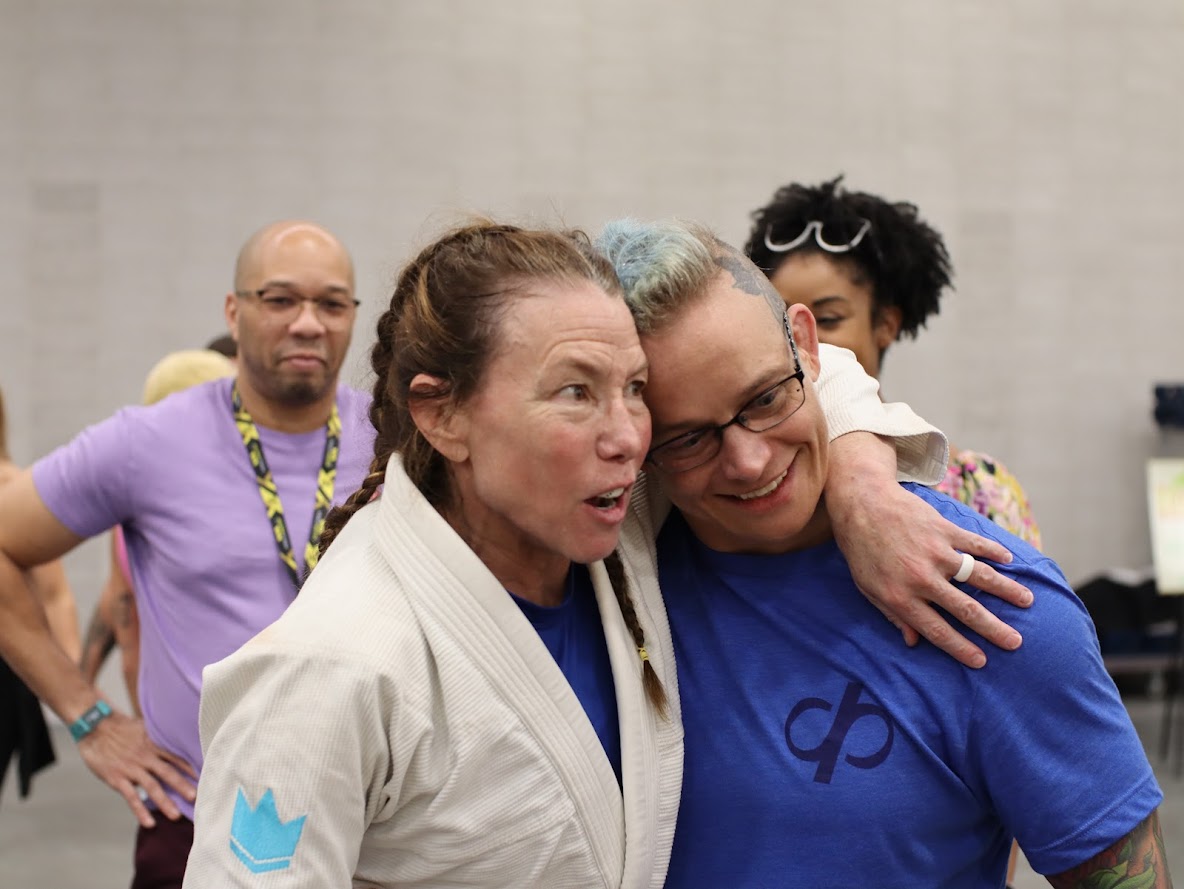Training During Menopause: The Least Discussed Topic in Fitness
Fitness is considered a relatively simple concept by most: eat healthy and exercise. Then, there are those who go the extra mile in tracking calories, steps, developing training regimens, etc. But did you know that some have to go way beyond those norms of research and exercise plans just to stay in shape? Those people are women doing fitness training during menopause.
Working out and staying in shape as a woman in perimenopause or during or after menopause is much more complicated than you may think. With all the unknown intricate details menopausal women may not know about their fitness needs, there are two women in particular who are working to do the necessary research, spread the word and change lives!
These two friends, Anna Martin and Dr. Jen Case, have graciously spoken to us about the topic. Anna has been competing in Olympic-style weightlifting since she was 14, earning a reputation as one of the best weightlifters in the country, and is currently owner and head coach at KC Weightlifting in Mission, KS. Dr. Case is a registered Dietitian and Certified Strength and Conditioning Specialist who holds a Ph.D. in Human Nutrition. On top of that, she’s a 13-time IBJJF World Champion who has been training since 2001 and is an instructor at Charlotte Jiu-Jitsu.
The Research
The two close friends are amongst the best in helping women achieve and sustain their fitness goals. Both have been implementing lessons learned through research and case studies to help their clients receive the best instruction possible. This includes reviewing the work of Dr. Stacy Sims, a nutrition scientist and one of the world leaders in female fitness research and promotion. Dr. Sims provides a highly-detailed breakdown of women’s fitness, specifically training during menopause, on her podcast appearance with Dr. Andrew Huberman. It’s a great listen for everyone, whether you are a woman seeking information, a man working to understand women’s perspectives, or an instructor looking to best train clients.
So what are the top takeaways from Martin and Case’s research? They’ve compiled this set of general rules and benefits for women to follow.

Rules to working out for women in Peri, Post or during menopause
- No Intermittent fasting
- Avoid Orange Theory-style training facilities
- High-intensity and/or resistance training workouts (2-4 days a week)
- Lift heavy (If you’re completing 10 reps, it’s not heavy enough)
- Consume 40-60 grams of protein within an hour of training
- Go 1-4 minutes at 80% intensity or full gas for 30 seconds (high-intensity cardio)
- Do jump training (bone adapts to stress, impacting skeletal system)
- Avoid casein protein when you can (found commonly in whey protein)
- Creates hot flashes and is the slowest protein to digest
Benefits of exercising and eating correctly for women in Peri, Post or during menopause
- Bone density increases or never goes away to begin with
- Body composition improvements
- Fat distribution changes
- Spikes levels of growth hormone
- Less fatigued
- Maintained strength (women can gain strength quite quickly working out)
- More flexibility to complete simple tasks as you age
- Overall better mental health
Martial arts and menopause
The potential benefits of proper training for women are invaluable. And while weight training is the main source, martial arts has its benefits for women as well.
As an extremely accomplished Jiu Jitsu fighter, Dr. Case believes Jiu Jitsu is perfect for women as they age. Alongside the physical benefits, including low-risk for injury, practicing Jiu Jitsu is great for women to find a community dedicated to fitness. Grappling with like-minded individuals builds trust and keeps you active to maintain your physical health for your entire life.

As a martial arts instructor, how can I help?
First, make sure you are as knowledgeable as possible on menopause and training during menopause. After that, put in the work. Incorporate high-intensity training for your older female students. That can be introduced via work on the mat, weight training, or a combination of both.
High-intensity mat work such as Wrestling or Grappling can be perfect for your students. When athletes are training above 90% intensity, they build strength while improving bone density, muscle, and tendon density. The right mat work can provide the perfect opportunity for that high-intensity cardio. For more details, you can check out Westside Barbell and their blog post about Absolute Strength HERE.
In terms of weightlifting, if you don’t have access to a full-sized gym for heavy lifts such as bench, squat, deadlift, etc., you can still incorporate other lifting techniques that will help menopausal women. Westside Barbell provides more information on those exercises in their blog post about Conditioning HERE.
While few trainers in any capacity think proactively or have any knowledge about the difficulties menopause adds to training, you can be an outlet for improving many lives. With proper education and care, you can contribute to lessening the worries of your students during a challenging time in their lives.
